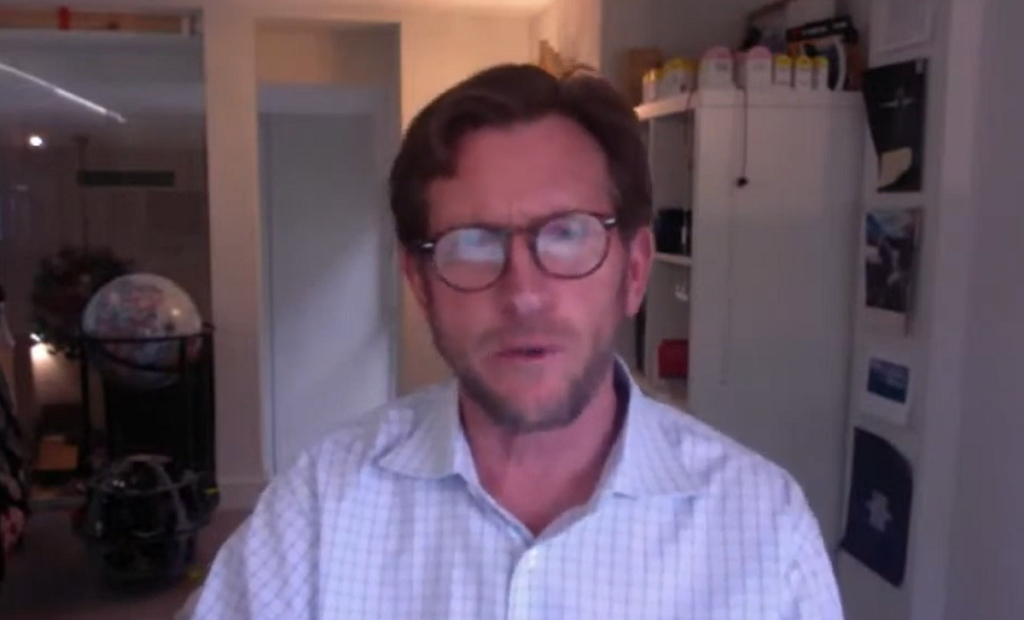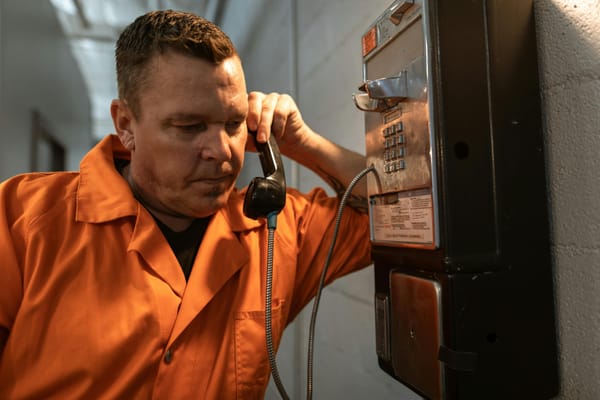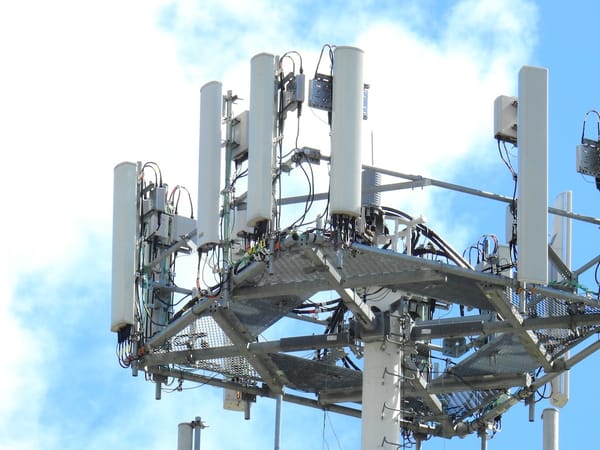CEO Greg Mesch Recounts How CityFibre, UK’s Third Major Telecom Provider, Grew With Wholesale Network
September 22, 2020 — Open access and wholesale networks have been slow in coming to the United States. Yet in the United Kingdom a network utilizing a wholesale model, CityFibre Networks, is taking the country by storm. CityFibre, led by CEO Greg Mesch, is simultaneously improving internet reliabili

September 22, 2020 — Open access and wholesale networks have been slow in coming to the United States. Yet in the United Kingdom a network utilizing a wholesale model, CityFibre Networks, is taking the country by storm.
CityFibre, led by CEO Greg Mesch, is simultaneously improving internet reliability and accessibility for users, while simultaneously allowing existing internet service providers to extend their reach. With £4 billion in investment, it is building fiber networks to eight million premises, or 30 percent of the UK market.
Fiber buildouts in the United Kingdom were lagging
UK’s fiber coverage ranked 35th in the world in 2010UK. The country’s advanced broadband market was dominated by two major players: British Telecom’s Openreach and Virgin Mobile.
Consumers had limited options, poor service, and high prices.
“When the opportunity to build a fiber network arose, we decided that instead of building it vertically-integrated, we would do it all open-access, or all wholesale,” Mesch said during the Digital Infrastructure Investment event at the Broadband Communities Summit.
“Why put a fiber network in that’s just only used by one ISP,” he questioned. He called for operators to “open it up to everyone” and attempt to “attract all ISPs to the network.”
CityFibre is nowhere near Mesch’s first fiber endeavor, as he worked with a variety of fiber and other telecom ventures in Europe before founding the UK company.
While CityFibre designs, builds, operates and owns the network, it allows existing internet service providers to operate on the platform, making no effort to compete with them.
In order to break ground on the project, Mesch raised £1.6 billion and completed multiple fiber acquisitions.
Vodafone and Goldman Sachs partners join in with CityFibre
CityFibre’s last-mile deployments began in late 2018, supported by Vodafone, a UK-based internet service provider and a substantial investment from individuals associated with Goldman Sachs.
Since the latter end of 2019, the broadband provider has embarked on aggressive plans to roll fiber out across the UK, seeing itself as the leading independent supplier of fiber networks after BT and Virgin Mobile.
The networks initial two-phase plan was to spend £2.5bn to deploy a 1 Gigabit per second (Gbps) fiber-to-the-home network to 20 percent of the current UK broadband market.
Phase One aimed to extend the network to a minimum of one million homes and businesses across 12 cities by the end of 2021. Phase Two promised to reach 5 million premises in 37 cities by 2025.
Current construction plans for CityFibre
Mesch updated Digital Infrastructure Investment attendees on CityFibre’s current construction plans: Above and beyond the prior Phase Two goal, the company is aiming to utilize a £4 billion investment to extend their fiber network to 8 million premises, 30 percent of the UK market.
Mesch detailed critical steps the company made in deploying the full fiber network and what it took to attract existing service providers to use the system. He said CityFibre had been able to attract some of the UK’s best-known telecom brands as clients.
To get its start, the company developed a strategic partnership with the biggest mobile operator in the UK in 2017, Vodafone. The company then moved to acquire TalkTalk, another fiber operator, which it bought from FiberNation. With the purchase, the company nearly double in size, effectively becoming the UK’s third largest national digital infrastructure platform.
Mesch said that key to attracting incumbent providers to use the network was providing 1 Gbps speeds and pricing the product less than existing operators.
In an attempt to advise up-and-coming entrepreneurs, Mesch said it is crucial to “aggregate demand across cities” and then build a wholesale, open unit.
“Once you have scale, incumbent providers will use you,” he detailed.
From publicly-traded to privately-held company
Attorney and Broadband Breakfast Editor and Publisher Drew Clark asked Mesch whether he preferred operating under a publicly-traded or a privately-traded company model. Mesch replied with a laugh, saying he loved both models and hated both models.
Ultimately, Mesch said that he personally believes “the best place for fiber ownership is in private hands.”
While CityFibre was initially a public company, it moved to become classified as a private infrastructure class ownership structure in 2018.
“We think it’s a perfect time to shift from public ownership and public scrutiny to private long-term patient capital while we go through this mass period of construction,” Mesch said in a 2018 interview with Reuters.
In order to amass scale, it is crucial that fiber assets remain in private hands, urging that while “one city isn’t scale, 50 cities is,” he said.
“It’s much easier for a big operator to consume from us,” than from cities, Mesch argued, claiming it is impossible for incumbents “to deal with 25 or 50 different municipalities.”
“We’re building across 100 cities in the UK,” said Mesch, and “being in private hands allows for the standardization of access rules and terms of service and is altogether easier to finance.”
“All pension funds have started to classify fiber as an investible asset,” he noted, “therefore, if you’re a pure fiber asset you’re deemed investible by an infrastructure fund,” while municipalities are not.
Mesch concluded saying “it behooves a city to help a private company build, but I don’t think a city should do it on their own.”
The United Kingdom’s push for full fiber buildout by 2025
Stakeholders in the UK are on the same page when it comes to the importance of deploying an accessible fiber network to all.
Last election, both the Labor Party and the Conservative Party, the two dominant parties in the country, campaigned on plans to deploy “full fiber” networks across the UK, within 5 years.
Mesch said that Britain’s need for a world-class digital infrastructure has never been greater, which is why he stands firmly behind the government’s plan for nationwide coverage by 2025.
“Essential to making an economy work and compete across the world today, is a world class infrastructure. Full fiber will play a critical role in levelling-up the UK and so today we are accelerating our plans to bring full fiber to more towns and cities, even faster,” he said.
The government and the people’s push for an accessible, reliable nationwide fiber network has benefited the company enormously. “The government is attracted to the model, which allows us to build at scale” with limited obstructions, said Mesch.
Mesch reported that when planning the network, the company uses a city-centric model, which accounts for public sector buildings, businesses, 5G, and consumers.
CityFibre believes that, underpinned by a full fiber infrastructure platform, these towns and cities will spur economic growth, helping to further develop the UK and make the country more competitive as a whole.
Can the wholesale model work in the U.S.?
During the event, Mesch mentioned that he would love to see what a wholesale model could do to expand fiber throughout the United States.
“I think a city fiber model could work in every city across the U.S.” said Mesch, although he noted the scale of the project would be “huge to do.”
While there is talk of what a CityFibre model could do across the U.S., how the model would operate over such a vast market remains unknown.
In an attempt to advise anyone interested in taking a stab at the pitched project, Mesch said “the first move would be to consolidate all wholesale, open access providers across the U.S., city-by-city,” noting that “as soon as you get scale, the bigger providers will use you.”
Displaying his interest in potentially trying to replicate Mesch’s model across the U.S., Ben Bawtree-Jobson, CEO of SiFi Networks, a North American open-access operator, joined to comment and ask questions of Mesch.
Bawtree-Jobson asked Mesch what the biggest obstacles were in constructing CityFibre Networks.
Mesch replied saying “today it’s the construction, but five years ago is was getting people to believe the model.”
Visit Digital Infrastructure Investment for complete information and summaries of the sessions from the Broadband Breakfast mini-conference, which is being re-broadcast at Broadband Communities Virtual Summit.










